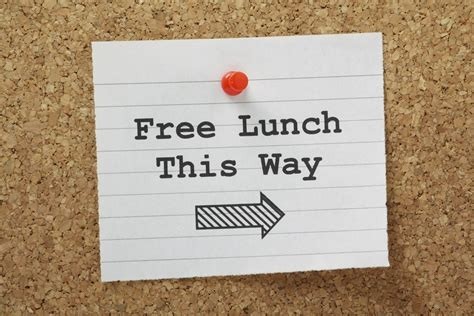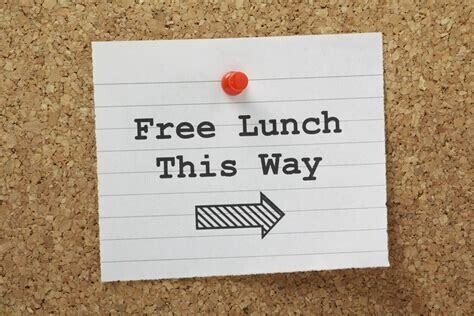
posted 14th February 2022

There is, they say, no such thing as a free lunch. That is, any benefit you receive has to be paid for somehow, even if it is not in the immediate form of a waiter presenting you with a bill. If someone invites you out to lunch, you will be expected to pay them back in some way: providing advice; doing some work for them; entertaining them with your witty conversation; or allowing them to share some of your glamour by being seen with them in a public place. To be a little less cynical, even if you are treated to lunch by someone out of simple friendship, there is still a social expectation that you will show gratitude, and that you will buy the next lunch.
How does this apply to debating? It’s a reminder that no proposed course of action, no motion, comes without some cost. A common mistake for beginning debaters is to speak as if what they are arguing for has no down sides whatsoever: taxing air travel more heavily, banning mobile phones in schools or making everyone vegan is so self-evidently a Good Thing that anyone who dares to suggest the action might bring some disadvantage to someone somewhere is either stupid or lying. The truth is that any change to the status quo will bring costs to some people and / or institutions as well as benefits to others. The debater’s task is not to wish away the costs; it is to show that the benefits outweigh the costs. This weighing up of gains and losses is called a cost-benefit analysis. It is practised routinely by any business or organisation before embarking on any plan which involves change, and learning how to do it is one of the (very many) useful skills debating teaches you.
How do you do cost-benefit analysis in practice?
Let’s take an example. You are proposing the motion This house would extend the congestion charge to the whole of Greater London. (The congestion charge is a fee of £15 which anyone driving through Central London between 7 am and 10 pm has to pay.)
The first step is to acknowledge, and list, the costs.
Financial
- Drivers will have to pay much more.
- More cameras will have to be installed and more officials will have to be hired to police the extended area.
Economic
- Businesses in London will lose custom from people who would have driven to them.
Social
- People who depend on cars for work and / or family will be inconvenienced.
- The measure will be resented by and unpopular with drivers.
By acknowledging that these costs exist, you cleverly take the wind out of the sails of the opposition; they can’t triumphantly declare all the problems with your proposed measure, because you’ve done it already.
Then, you move on to the benefits.
Financial
- The extension of the charge will provide much needed income for the government of London; this can be spent on improving and lowering the cost of public transport in London.
Economic
- The reduction in the number of cars on the road will lead to greatly improved health for Londoners. They will be breathing less polluted air; they will be more likely to walk or cycle to work; there will be fewer road accidents. This will bring down costs for the NHS and reduce absence from work for illness.
- People will actually be more likely to travel to / through London to shop, eat, visit etc. as it will be safer and pleasanter to be in. This will be of great benefit to London businesses.
Social
- The newly improved public transport system will provide people with a cheaper and greener alternative to driving.
- London will be a much nicer, safer, cleaner place to live. Remember how lovely it was to walk, run or cycle next to / on empty roads during lockdown? Wouldn’t you like some of that back?
You will see that most of the costs of this motion come in the short term, and that most of the benefits come in the long term. So in this case, you should present the cost-benefit analysis from a long term perspective, showing that over the course of time the benefits of your proposal will greatly outweigh the costs.
How do you argue for the opposition? Simply switch the process around. Acknowledge the benefits of the action proposed by the motion before going on to list all the costs, and to show how they outweigh the benefits.
So, to sum up:
- Almost any course of action has some costs, and some benefits.
- If you are the proposition, acknowledge the costs of the action entailed by the motion, but show how they are outweighed by the benefits.
- If you are the opposition, acknowledge the benefits of the action entailed by the motion, but show how they are outweighed by the costs.





